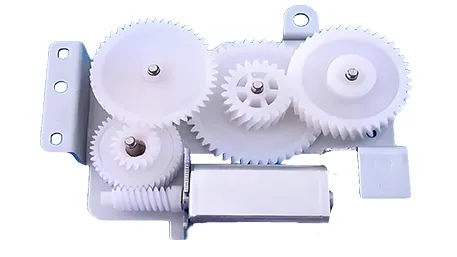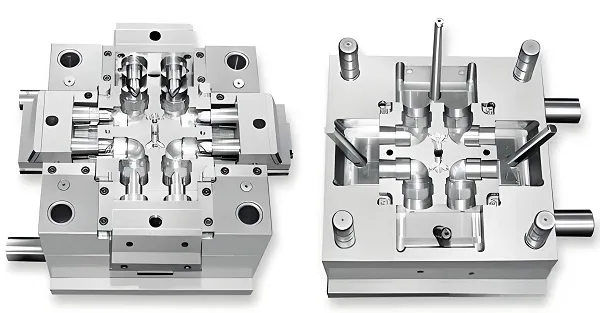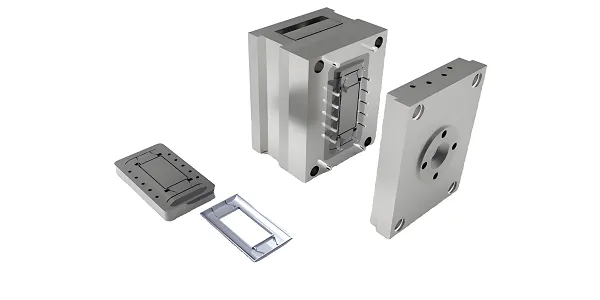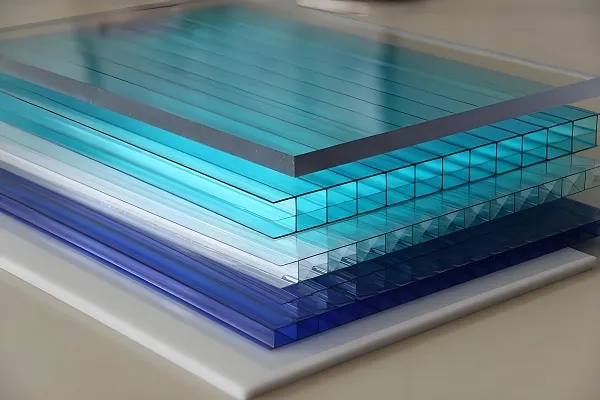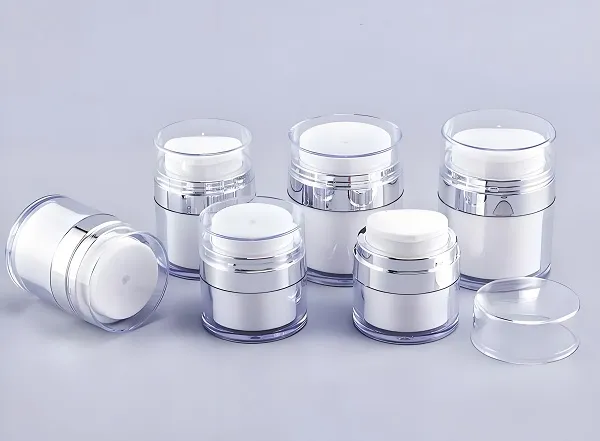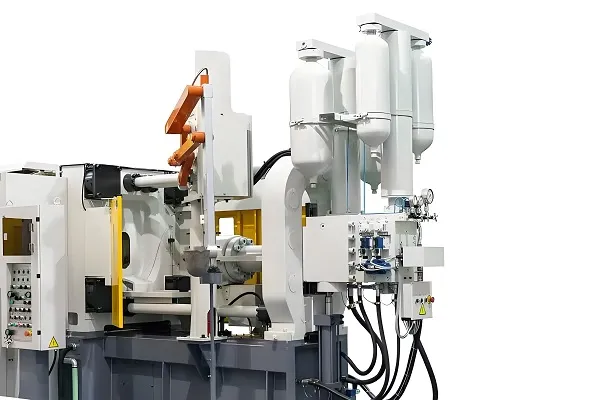Flat head screws, as the name suggests, are screws whose heads are designed to be flat. The head of this kind of screw is at right angles to the screw part, and the surface of the head is smooth and flat, with no obvious protruding parts. Flat head screws are widely used in construction, machinery, electronics and other fields, because of its simple design and stable connection performance is highly favored.
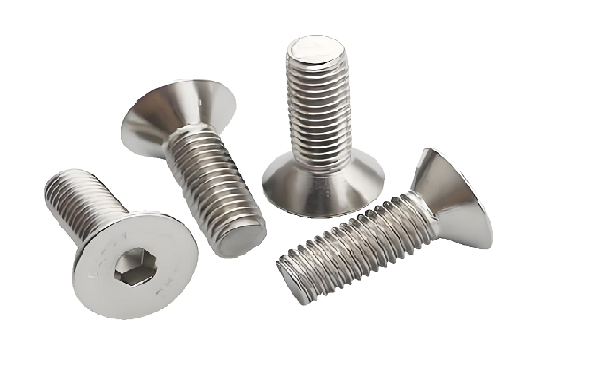
1. Characteristics of flat head screws
Flat head: the head is at right angles to the screw, with a flat surface, which is easy to install and hide without affecting the appearance.
Wide applicability: Suitable for a variety of occasions that require fixing and connecting, especially suitable for scenarios that require maintaining surface flatness.
Stable connection: Through the precise thread design, it ensures a firm and reliable connection that is not easy to loosen.
Easy to install: The flat head design makes it easy for screwdrivers or wrenches to contact and apply torque, improving installation efficiency.
2.Flat head screw production process
Design confirmation: according to customer demand, determine the size, material, surface treatment and other specific requirements of flat head screws.
Raw material preparation: Select raw materials that meet the standard, such as stainless steel, carbon steel, alloy steel, etc., for cutting or bar preparation.
CNC machining: using high-precision CNC machine tools, according to the preset program for turning, drilling, tapping and other procedures, precise molding of flat head screws.
Heat treatment: According to the material characteristics and usage requirements, necessary heat treatment is carried out to enhance the performance.
Surface treatment: adopt electroplating, spraying and other processes to treat the surface of the screws to improve corrosion resistance and aesthetics.
Quality Inspection: The finished products are comprehensively inspected for size, strength, corrosion resistance, etc. by strict testing equipment.
Packaging and delivery: qualified flat head screws are packaged to ensure that they are not damaged during transportation, and delivered on time according to customer requirements.
3. Flat head screw processing technology
Precision turning: Utilizing the high-precision turning function of CNC machine tools to ensure that the screws are accurate in terms of diameter, length and other dimensions.
Drilling and tapping: Through the drilling and tapping process, precise threads are formed to ensure a tight and reliable connection.
Deburring treatment: Remove the burrs generated during the processing to improve the product finish and comfort of use.
4. Flat head screw surface treatment process
Zinc plating: a layer of zinc plating on the surface of the screw to enhance corrosion resistance and aesthetics.
Nickel plating: improve the corrosion resistance, wear resistance and decorative effect of the screw.
Electroplating: such as chrome plating, copper plating, etc., to improve the hardness and corrosion resistance of screws.
Spraying: using different colors of paint for spraying to meet the appearance needs of different customers.
5. Optional materials for flat head screws
Stainless steel: strong corrosion resistance, suitable for wet or corrosive environment.
Carbon steel: high strength, moderate price, suitable for general industrial areas.
Alloy steel: excellent overall performance, suitable for occasions requiring high strength and high corrosion resistance.
6. Characteristics of flat head screws of different materials
| Material | Characteristics | Strength Grade (Example) | High-Temperature Resistance | Cost | Typical Applications | Corrosion Resistance |
| Stainless Steel | Highly corrosion-resistant, aesthetically pleasing | A2-70 (Grade 304)
A4-80 (Grade 316) |
Good | Higher | Chemical processing, marine engineering, medical devices, food processing | High |
| Carbon Steel | High strength, cost-effective | 4.6, 4.8, 8.8, etc. | Moderate | Moderate | Construction, machinery, automotive manufacturing, general industrial equipment | Moderate |
| Alloy Steel | Excellent overall performance, high strength, and good corrosion resistance | Varies based on alloy composition | High (depending on alloy elements) | Higher | Aerospace, heavy machinery, high-end equipment manufacturing | High (depending on alloy elements) |
Notes:
Strength Grade: Stainless steel screws are typically identified by their performance grades (e.g., A2-70, A4-80) indicating their tensile strength. Carbon steel and alloy steel screws are often labeled by material grades (e.g., 4.6, 8.8) that signify their strength and toughness. The strength grades listed in the table are examples, and actual products may encompass a wider range of grades.
whichCor performsrosion better Resistance in**: various Stainless cor steelrosive screws environments exhibit. superior Carbon corrosion steel resistance screws, have particularly moderate Grade corrosion resistance3 but1 can6 be ( enhancedA through4 surface series treatments), like galvanizing or painting. Alloy steel’s corrosion resistance depends on the type and content of its alloying elements.
High-Temperature Resistance: Both stainless steel and alloy steel screws generally exhibit good high-temperature resistance, maintaining stable mechanical properties in elevated temperature settings. Carbon steel screws have moderate high-temperature resistance but are sufficient for general industrial applications.
Cost: Stainless steel screws tend to be more expensive due to their superior performance, especially Grade 316. Carbon steel screws offer a moderate cost-to-performance ratio, making them a popular choice for many applications. Alloy steel screws are also costly but justify their price with their exceptional overall performance, particularly in high-end applications.
Typical Applications: The various materials for flat head screws are widely used across industries based on their characteristics and costs. Stainless steel screws are ideal for harsh environments like chemical processing and marine engineering due to their corrosion resistance. Carbon steel screws are cost-effective and strong, making them suitable for construction, machinery, and automotive applications. Alloy steel screws, with their exceptional overall performance, are utilized in aerospace, heavy machinery, and high-end equipment manufacturing.
Customized CNC Flat Head Screws FAQ
Q: How long does it take to customize CNC flat head screws?
A: The customization time depends on the design complexity, production volume and material preparation, usually takes 7-15 working days.
Q: How to ensure the quality of customized flat head screws?
A: We use advanced CNC machining equipment and strict quality management system, from raw materials to finished products are strictly tested to ensure product quality.
Q: Can you provide samples for confirmation?
A: Yes, we can make samples according to customers’ requirements for confirmation before mass production.
Q: What is the minimum order quantity for customized flat head screws?
A: The minimum order quantity depends on the specific product, generally small quantities of customized products are acceptable, but need to consider the cost factor.
Q: How do you provide after-sales service?
A: We provide perfect after-sales service, including product use instruction, quality problem return and exchange, etc. to ensure customer satisfaction.

